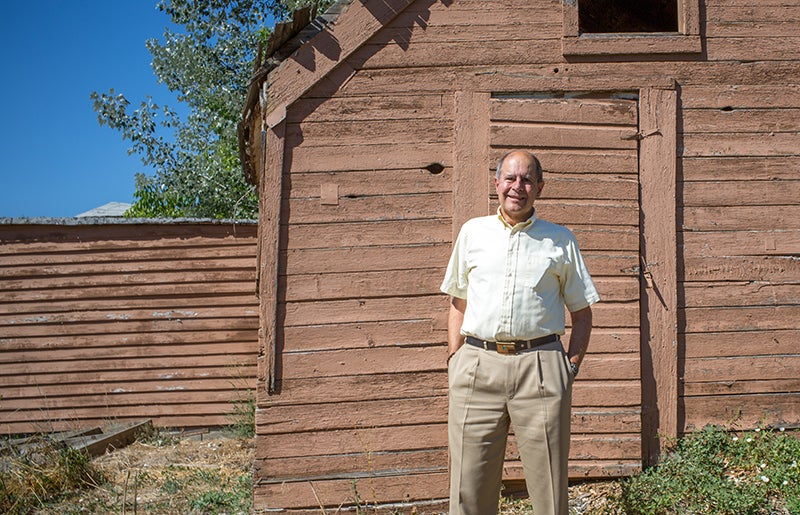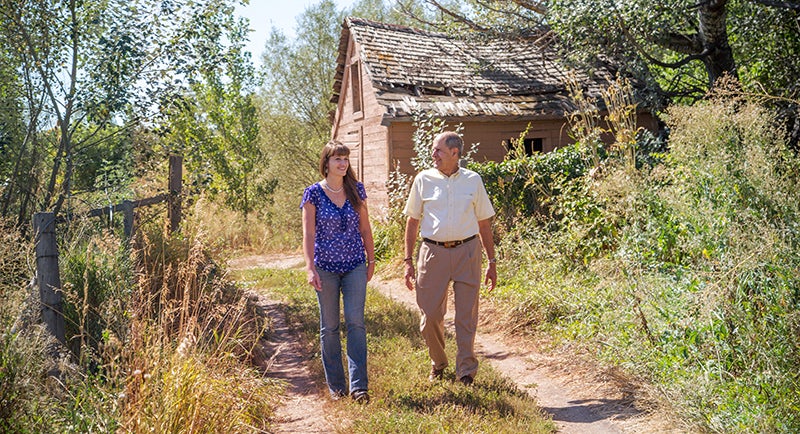Deep roots in Denver
Alan Davis, Ph.D., calls himself a “Colorado boy.” The CU Denver education professor grew up near Golden, started skiing when he was 12 and graduated from Wheat Ridge High School.
Career advancement opportunity
Interested in advancing your career at CU with courses and degrees (MA and PhD) from CU Denver’s Research and Evaluation Methods program?Solve problems by:
- Designing research plans and conducting the research
-Identifying appropriate sources of information to collect data
- Designing appropriate methods of data collection such as questionnaires and interview protocols
- Analyzing date using quantitative, qualitative and mixed methods
- Using SPSS, NVivo and other applications to analyze data
- Interpreting data and reports
Davis might also be called a Denver scholar for the years of service he has given, and continues to give, to schools in the Mile High City. From serving on Denver Public Schools (DPS) boards and task forces to helping develop the CU Denver–DPS Research Collaborative, he has been a partner in local education for decades.
The CU Denver faculty member of 27 years received the 2017 Lynn K. Rhodes Endowed Faculty Award from CU Denver’s School of Education and Human Development (SEHD). Named for the former CU Denver education dean, the awardee is chosen by former Dean Rhodes and current Dean Kantor to honor SEHD faculty who make a significant contribution to the school and the communities we serve.
“I have high regard for the purpose of the prize and was very honored by the award,” Davis said.
Research for the community
A faculty member in CU Denver’s Research and Evaluation Methods program, Davis has contributed much of his community service through his research for DPS. Since 2011, he has served as researcher-in-residence with the CU Denver–DPS Research Collaborative, coordinated a professional development grant to help English language learner (ELL) students in Denver, and led local initiatives to improve attendance, increase organizational coherence and reduce dropout rates.
His research returns often to issues of culture and diversity, such as ELL success factors, urban learning environments and the immigrant experience. He’s fascinated with the concept of an adolescent student’s developing sense of identity and how it affects academic success and career aspirations. Through a National Science Foundation grant project led by SEHD Mathematics Education professor Ron Tzur, Davis is now studying a new approach to teaching mathematics to multilingual learners in low-income urban schools.
“Part of the pleasure of my work is constantly learning new things,” Davis said. “It keeps you mentally young. Now that I’m 70 years old, that’s one of the things that I think about.”
Connecting across cultures
As an undergraduate in Southern California in the late 1960s, Davis planned to become an economist. But that changed when a serendipitous hitchhiking encounter led him to a job teaching eighth- and ninth-grade math and language arts in San Luis, Colorado.
“It was a life-changing experience,” he said. “I was bilingual, and so were all but four of my students. The culture of the San Luis Valley was new and wonderful to me.”
He went on to get his master’s degree in teaching from Harvard University. As he gained diverse teaching experiences — in the Philippines, at Native American high schools and with urban and rural school districts across the country — Davis learned more and more about the role of culture in education, and in achievement gaps.
“Nothing exists outside of culture,” he said. “So, it’s important that teachers learn something about the culture and neighborhood that their students come from and find a way to connect with that.”
Davis has brought this mindset to his decades of teaching SEHD undergraduate, master’s and doctoral students. He believes the school’s emphasis on culture is one of its biggest strengths.
“At CU Denver, we try to recruit students from diverse populations, and our faculty is pretty diverse as well in terms of race, national origin and sexual orientation,” he said. “We see our mission as preparing teachers to work in urban and rural schools with diverse populations.”
A legacy through teaching
Davis has been teaching for nearly half a century, and he doesn’t intend to stop anytime soon. He’s still starting new projects, like his new undergraduate research methods course for SEHD’s Human Development and Family Relations program.
“I haven’t retired simply because I am in very good health, still learning, still interested in research and still loving the opportunity to teach in and out of the classroom,” he said.
“I insist on teaching. Anyone in teaching has a legacy in the sense of what your students go on to do. You have some small share in that, and that’s very satisfying.”
So satisfying, apparently, that this “Colorado boy” may continue teaching long after he stops downhill skiing.
“I don’t want to damage my knees. Those things have to last,” he said. “But my job is extremely rewarding to me. I love every aspect of it: teaching, doing research, the service component. It’s a job that seems to fit perfectly with my personality and skill.”
This story first appeared in CU Denver Today.




